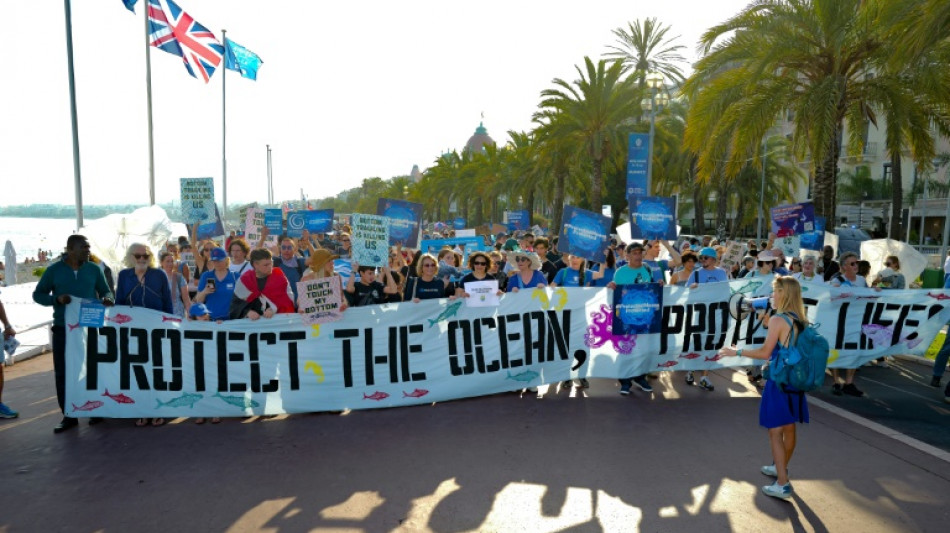
RBGPF
0.1000


World leaders arrive in the French Riviera on Sunday ahead a high-level summit on ocean conservation, as nations face pressure to adopt tougher stances on overfishing, pollution and marine protection.
The United Nations has sounded the alarm over an oceans "emergency" and leaders gathering in Nice will be called to commit money and stronger protections for the seas.
The UN Ocean Conference, starting Monday, seeks to turn a corner as nations feud over deep-sea mining, plastic litter and exploitative fishing, against a backdrop of wider geopolitical tensions.
"We have a duty to mobilise, because the science is clear and the facts are there," said French President Emmanuel Macron in Monaco on Sunday, where he attended a pre-conference event on ocean finance.
Some 60 heads of state and government are expected in Nice, including Brazilian President Luiz Inacio Lula da Silva and his Argentine counterpart Javier Milei.
"The planet can no longer tolerate broken promises," said Lula on Sunday.
"Either we act, or the planet is in danger."
- 'No excuses' -
Later Sunday, Macron was to arrive in Nice from Monaco and tour the conference venue, made to look like the cavernous belly of a whale.
In the evening, he was to host leaders for a dinner of Mediterranean fish.
France has deployed 5,000 police to Nice for the five-day summit where scientists, business leaders and environmental activists were also to attend in big numbers.
A strong turnout was expected from Pacific Island nations, whose delegations will urge financial aid to combat the rising seas, marine trash and plunder of fish stocks.
The United States under President Donald Trump -- whose recent push to fast-track seabed mining in international waters sparked global outrage -- was not expected to send a delegation.
Conservationists have warned the summit -- which will not produce a legally binding agreement -- risks being a talkfest unless leaders come up with concrete proposals to restore marine health.
On Saturday, Macron said France would restrict bottom trawling -- a destructive fishing method that indiscriminately scrapes the ocean floor -- in some of its marine protected areas.
Britain also said it would announce plans looking to extend a ban on bottom trawling to more than half of protected English seas.
Environmental groups said such steps were good but do not go far enough.
- Pay up -
Nations will also face calls to cough up the missing finance to protect 30 percent of the world's oceans by 2030, a target agreed by nearly 200 countries in 2022.
"We've created this sort of myth that governments don't have money for ocean conservation," Brian O'Donnell, director of Campaign for Nature, told reporters.
"There is money. There is not political will," he said.
So far, only around eight percent of oceans are designated marine conservation zones and even less are considered truly protected.
Greenpeace says at this rate, it could take another 82 years to reach the 30 percent goal.
In a boost this week, Samoa declared 30 percent of its national waters under protection with the creation of nine new marine parks.
Conservationists hope others at the summit follow suit.
"All eyes should be on the many Pacific leaders attending.... Their ambition and dedication to ocean protection can serve as inspiration to all countries," said Kevin Chand from the nonprofit group Pristine Seas.
Another summit priority will be inching towards the numbers required to ratify a global treaty on harmful fishing subsidies, and another on protecting the high seas beyond national control.
France is also spearheading a push in Nice to build support for a moratorium on deep-sea mining ahead of a closely-watched meeting of the International Seabed Authority in July.
O.Tse--ThChM